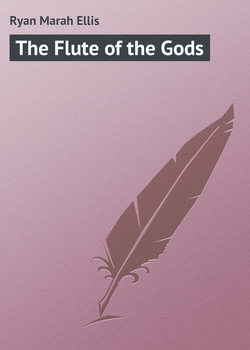Читать книгу The Flute of the Gods - Ryan Marah Ellis - Страница 1
PREFACE
ОглавлениеIn romances of the aborigines of the so-called New World there is usually presented savage man or woman modified as may be by the influence of European mythologies in various authorized forms. But, certain people of this New World possessed at least a semi-civilization centuries before the coming of white conquerors.
When man ceases to be nomadic, builds houses of stone and mortar, terrace upon terrace,–walled and fortressed against the enemy,–when he has fields of growing grain, textile fabrics, decorated pottery, a government that is a republic, a priesthood trained in complex ritual, a well stocked pantheon, a certain understanding of astronomy and psychic phenomena, he may withal be called barbarian, even as was Abraham on Moriah barbaric when the altar of his god called for sacrifice of his only son. But a people of such culture could not with truth be called savage.
The tale told here has to do with these same historic barbarians. That there is more of depth to the background of American Indian life than is usually suggested by historians has been made clear of two tribes by Dr. Le Plongeon in his Sacred Mysteries of the Mayas and Quiches 11500 Years Ago. Similar mysteries and secret orders exist to-day in the tribes of the Mexicos and Arizona. In certain instances the names and meanings of offices identical with those of Yucatan survive, to prove an ancient intercourse between the Mayan tribes and those who now dwell in the valley of the Rio Grande. The Abbe Clavigero left account of a thousand years of the history of one tribe as transcribed by him from their own hieroglyphic records. Lord Kingsborough may have been far astray with his theory that the people of America were the Lost Tribes of Israel, but the researches embodied in his remarkable Antiquities of Mexico, demonstrated the fact that they were not a people of yesterday.
As to historic notes used in this tale of the more northern Sun worshipers: Cabeza de Vaca, the first European to cross the land from the Mississippi to Mexico (1528-1536), left record in Spanish archives of Don Teo the Greek. Casteñada, historian for the Coronado expedition (1540-1542), left reluctant testimony of the worse than weird night in one Indian town of the Rio Grande, when impress was left on the native mind that the strong god of the white conquerors demanded much of human sacrifice. In that journal is record also of the devoted Fray Luis, of whose end only the Indians know. In Soldiers of the Cross by Archbishop Salpointe, there is an account of a god-offering made in 1680 (after almost a century of European influences), warranting the chapter describing a similar sacrifice on the same shrine when the pagan mind was yet supreme and the call of the primitive gods a vital thing.
It is yet so vital that neither imported government nor imported creeds have quite stamped it out. Only the death of the elders and the breaking up of the clans can eradicate it. When that is done, the Latin and the Anglo-Saxon will have swept from the heart of the land, primitive, conservative cults ancient as the Druids.
With thanks to the Indian friends who have helped me, I desire especially to express my obligation to Edward S. Curtis, whose wonderful volumes of The North American Indian have been an inspiration, and whose Indian pictures for this book of mine possess a solid value in art and ethnology far beyond the mere illustration of text.
M. E. R.
